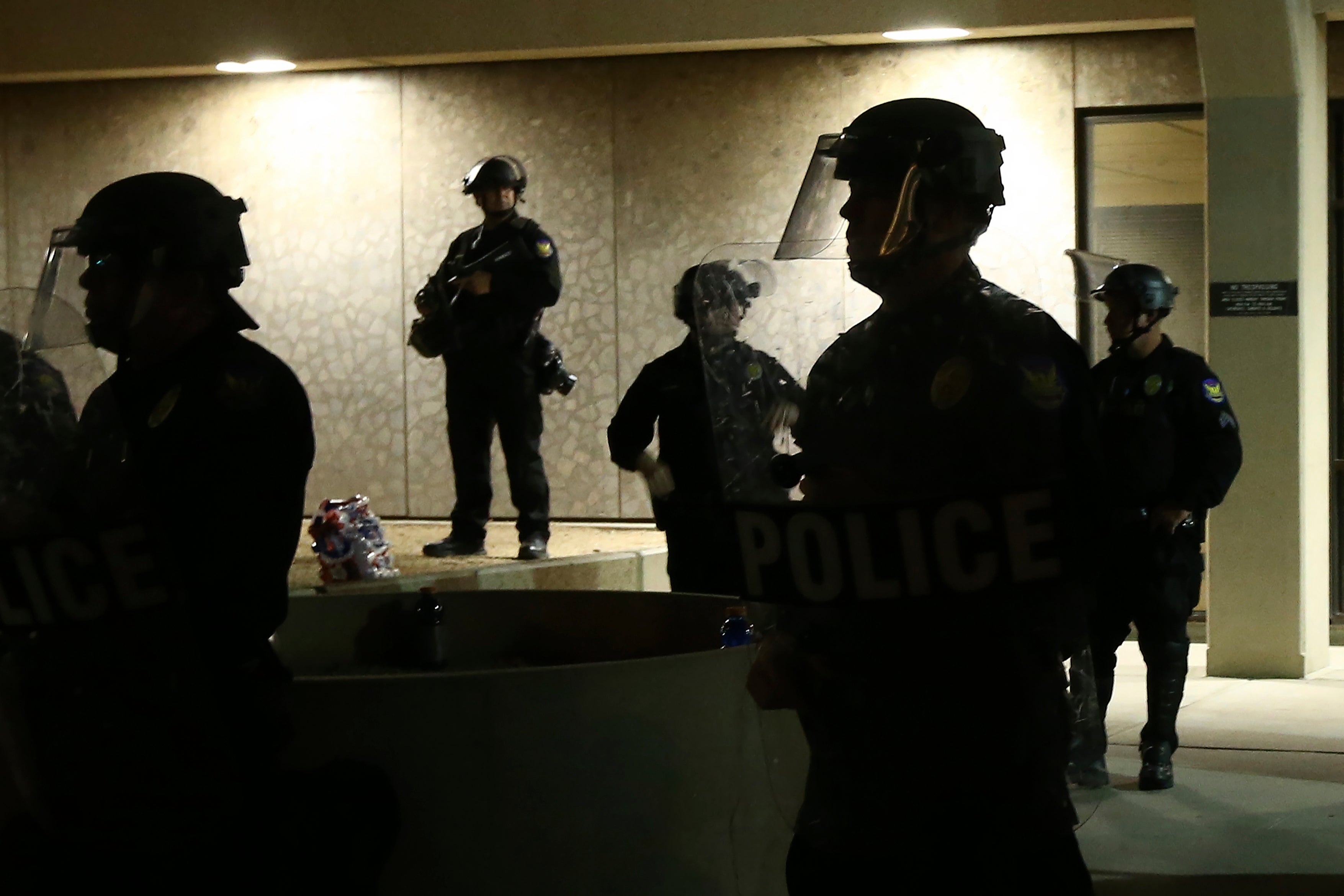Court strikes down limits on filming of police in Arizona
A federal judge has ruled that an Arizona law limiting how close people can get to recording law enforcement is unconstitutional, citing a clearly established right to film police doing their jobs

Your support helps us to tell the story
From reproductive rights to climate change to Big Tech, The Independent is on the ground when the story is developing. Whether it's investigating the financials of Elon Musk's pro-Trump PAC or producing our latest documentary, 'The A Word', which shines a light on the American women fighting for reproductive rights, we know how important it is to parse out the facts from the messaging.
At such a critical moment in US history, we need reporters on the ground. Your donation allows us to keep sending journalists to speak to both sides of the story.
The Independent is trusted by Americans across the entire political spectrum. And unlike many other quality news outlets, we choose not to lock Americans out of our reporting and analysis with paywalls. We believe quality journalism should be available to everyone, paid for by those who can afford it.
Your support makes all the difference.A federal judge has ruled that an Arizona law limiting how close people can get to recording law enforcement is unconstitutional, citing infringement against a clearly established right to film police doing their jobs.
The ruling Friday from U.S. District Judge John J. Tuchi permanently blocks enforcement of the law that he suspended last year.
The Republican-backed law was signed by former Republican Gov. Doug Ducey in July 2022 but enthusiasm for the restrictions faded and legislators refused an opportunity to defend the law during an initial court suspension. Republican state Sen. John Kavanagh, who sponsored the measure, has said he was unable to find an outside group to defend the legislation.
The law would have made it illegal to knowingly film police officers 8 feet (2.5 meters) or closer if the officer tells the person to stop. And on private property, an officer who decides that someone is interfering or that the area is unsafe could have ordered the person to stop filming even if the recording was being made with the owner’s permission.
“The law prohibits or chills a substantial amount of First Amendment protected activity and is unnecessary to prevent interference with police officers given other Arizona laws in effect,” Tuchi ruled.
A coalition of media groups and the ACLU successfully sued to block the law. Prominent law enforcement officials refused to defend the law, including former Republican Attorney General Mark Brnovich and both the prosecutor and sheriff’s office in Maricopa County, home to Phoenix.
Bystander cellphone videos are largely credited with revealing police misconduct — such as with the 2020 killing of George Floyd at the hands of Minneapolis officers — and reshaping the conversation around police transparency. But Republican Arizona lawmakers initially said the legislation was needed to limit people with cameras who deliberately impede officers.
The Associated Press filed a friend of the court brief urging Tuchi to block the law from being enforced. The AP’s attorneys said that photographers especially could be caught up while covering rallies, where it could limit their ability to capture the full interactions between police and protesters.